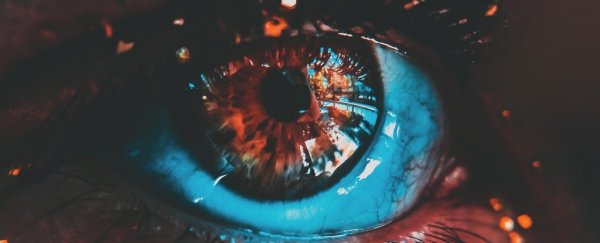Narcissists aren't hard to spot. You can tell them from the way they act, how they're raised, or where they live. Even, apparently, their eyebrows.
But where does this grandiose sense of self-importance and entitlement actually come from? A new study from psychologists in Germany suggests the answers might not be as simple as what some think.
One common assumption people make about narcissists is that their self-loving exterior hides negative, unconscious feelings of self-loathing and insecurity. This is sometimes called the 'mask' model of narcissism, and is often attributed to the psychodynamics research of Austrian-American psychoanalyst Heinz Kohut.
But at least one influential study found this wasn't necessarily the case.
In 2007, an experiment led by psychologist Keith Campbell from the University of Georgia discovered narcissists actually exhibited positive 'implicit' self esteem, suggesting they didn't uniformly dislike themselves "deep down inside".
The good vibe wasn't 100 percent – the caveat being that the internal, favourable self-views narcissists held were limited to things like feelings about their personal intelligence and status, called the 'agentic' domains (in reference to people's powers of agency).
When it came to the 'communal' domains – self-views about their kindness, morality, and emotional intimacy – narcissists scored neutrally.
"In sum, it may be imprecise to conceptualise narcissism as a positive explicit self-concept blanketing a negative implicit self-concept," Campbell and his co-authors wrote in their paper.
"Rather, narcissists exhibit a somewhat imbalanced self at both explicit and implicit levels, with favourable agentic self-views that are not necessarily matched by favourable communal self-views."
But a recent study by researchers from the University of Potsdam suggests we're still missing something here.
To clarify the contradictory state of psychological literature on the inner lives of narcissists, psychologists Ramzi Fatfouta and Michela Schröder-Abé attempted to replicate the 2007 results – this time recruiting 730 participants for the tests, a sample more than five times greater than the original experiment's cohort.
While Fatfouta and Schröder-Abé speak positively of the original, influential study, they point out that to date nobody has tried to systematically reassess its findings, and given the reproducibility crisis in science (and especially psychology research), it was time to address that.
As it turns out, the 2007 results could not be replicated, at least with regard to the implicit self-views.
In a series of computer-based word association and self-esteem tests, the participants who scored high for narcissism didn't show an association with favourable implicit self-views about things like their status, intelligence, and ability to get ahead.
"Our findings provide no support for the claim that narcissists possess positive implicit self-views in the agentic domain," the authors write.
"The results of our replication study support the null hypothesis and suggest that narcissists actually possess neutral rather than positive implicit self-views in the agentic domain."
As the researchers point out, their findings are in agreement with Campbell's 2007 results on at least one score – there was nothing here to support the 'mask' model, as the new data "do not provide any support of the idea that narcissists do not like themselves "deep down inside" (i.e., implicitly)."
But as for saying more about where narcissists' inner emotional lives spring from, we are sadly no wiser.
It's not the first time these perplexing psychological traits have surprised us, and we're sure it won't be the last.
The findings are reported in the Journal of Research in Personality.
